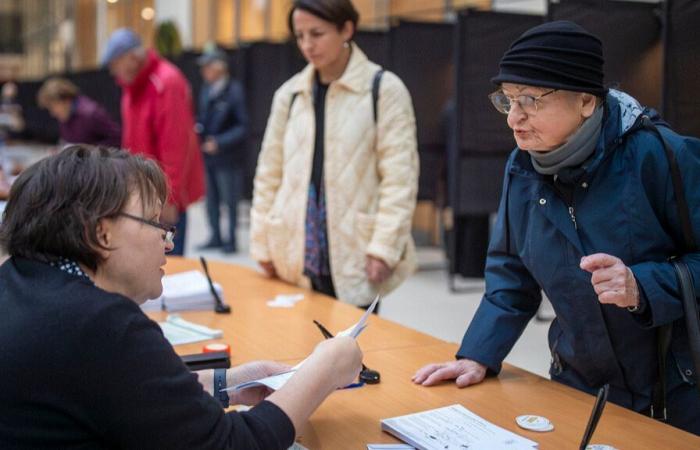Lithuania’s polling stations opened at 6 a.m. on Sunday morning for the first round of the parliamentary elections.
Around 2.4 million voters are expected to vote during the day for elect 141 members of the Seimas, the Lithuanian Parliament, from 2,400 candidates, for a four-year term.
Polling stations will close at 5 p.m. and results are expected to be announced on Monday.
The second round, which will see constituencies choose between the two candidates who came out on top in the first round, is scheduled for October 27.
This vote could lead opposition social democrats and smaller center-left parties to replace the center-right government coalitionaccording to estimates.
Popular support for conservative Prime Minister Ingrida Šimonytė’s government has suffered from strict measures put in place during the COVID-19 pandemic, and the recent influx of migrants into the country, mainly from neighboring Belarus.
Lithuania, however, displays annual growth in personal income above 10% and has one of the lowest inflation rates in the 27-nation EU bloc.
“There is a lot of disappointment and discontent among voters”says Rima Urbonaitė, political analyst at Mykolas Romeris University in Vilnius. “This is linked to numerous crises and shocks and cannot be compensated by economic factors such as positive developments in purchasing power”.
Ingrida Šimonytė criticized on COVID-19 and migration policies
Many Lithuanians criticize Ingrida Šimonytė’s government for not not having sufficiently helped businesses during the lockdown during the COVID-19 pandemic. Some also claim that thousands of people have not had access to health services.
The Lithuanian Prime Minister was also criticized for its management of migrants arriving from Belarus.
The social democratic party, led by Vilija Blinkevičiūtė, is the favorite in the legislative elections by estimates, closely followed by the National Union of Ingrida Šimonytė.
The new Nemuno Aušra party, founded by right-wing politician Remigijus Žemaitaitis, who was dismissed earlier this year for making anti-Semitic comments, is also expected to perform well.
If no party obtains more than 20% of the vote, alliances will have to be formed between the parties.
Analysts estimate thata shift to the left would not bring significant changes to Lithuania’s foreign policywhich borders the Russian exclave of Kaliningrad to the west and Belarus to the east and south.
However, the vote comes at a time when Russia’s war in Ukraine is fueling fears about Moscow’s intentions, particularly in the strategically important Baltic region.






